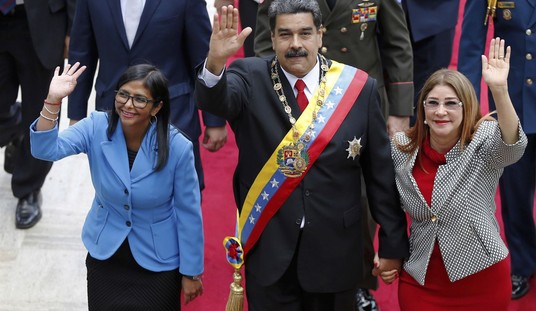President Obama’s speech at Hiroshima, widely criticized as an indirect apology for the A-bomb, is shown in the text of his speech to be something else. It is an interpretation of recent human history not as a contest between good versus evil, as the World War 2 generation saw it, but as an indictment of poor global human governance. The tragedy of Hiroshima, Obama argues, lay in technology escaping regulation to an intolerable level. He said:
It is not the fact of war that sets Hiroshima apart. Artifacts tell us that violent conflict appeared with the very first man. Our early ancestors having learned to make blades from flint and spears from wood used these tools not just for hunting but against their own kind. On every continent, the history of civilization is filled with war, whether driven by scarcity of grain or hunger for gold, compelled by nationalist fervor or religious zeal. Empires have risen and fallen. Peoples have been subjugated and liberated. And at each juncture, innocents have suffered, a countless toll, their names forgotten by time.
In his view war is old. It was the Atomic Bomb which was new and therefore destabilizing. Those who brought this unregulated thing into the world thus assumed a huge responsibility. It’s an interesting formulation, for at a stroke the great moral issues of World War 2 are reduced to a narrative in which everyone — including militaristic Japan, Nazi Germany, Fascist Italy, Soviet Russia — were alike victims of age-old human passions enabled by revolutionary weaponry. No one is guilty. We are all just victims. But facts have to be faced, Obama argued. Since a “moral revolution” cannot be effected by the great religions which falsely promise a pathway to love while offering only a license to kill, then man is irredeemable without government.
Every great religion promises a pathway to love and peace and righteousness, and yet no religion has been spared from believers who have claimed their faith as a license to kill. … But those same stories have so often been used to oppress and dehumanize those who are different.
Science allows us to communicate across the seas and fly above the clouds, to cure disease and understand the cosmos, but those same discoveries can be turned into ever more efficient killing machines.
The wars of the modern age teach us this truth. Hiroshima teaches this truth. Technological progress without an equivalent progress in human institutions can doom us. The scientific revolution that led to the splitting of an atom requires a moral revolution as well.
So more government we will have up to any extent necessary to make safety mandatory. The moral drama of WW2 vanishes, leaving the Hiroshima speech as an unvarnished plea for an arms-control bureaucracy; the demand for a global safe space; a call for gun control on a planet-wide scale.
Hiroshima teaches this truth. Technological progress without an equivalent progress in human institutions can doom us. The scientific revolution that led to the splitting of an atom requires a moral revolution as well. …
The United States and Japan have forged not only an alliance but a friendship that has won far more for our people than we could ever claim through war. The nations of Europe built a union that replaced battlefields with bonds of commerce and democracy. Oppressed people and nations won liberation. An international community established institutions and treaties that work to avoid war and aspire to restrict and roll back and ultimately eliminate the existence of nuclear weapons.
The Hiroshima speech is in fact intended as a springboard for more arms-control proposals, but Obama’s supporting narrative for more government and a closer control of things is at odds with the contemporaneous recollection of those who actually fought World War 2. For them it was a struggle against what was then called fanaticism, what we would today call ideology.
The 1940s generation saw themselves reining in the Moloch gods that had eaten up the world, which forced state power into every nook and cranny such that it could order its citizens to commit suicide against a designated enemy, report their parents to secret police or endure death simply as objects of punishment for having failed the Fuhrer or the Emperor. They saw this as unnatural.
The historical World War 2 generation did not fight for more government but, on the contrary, to end a fanaticism which had run amuck. They realized more acutely than we moderns that ideology meant the death of the body because it involved the death of the mind, a concept that would be alien to many today. Thus in the end the Axis powers were perceived as doomed by their own madness. Japan was defeated long before the A-bomb was dropped and Germany many months before the final Götterdämmerung in Berlin against all reason. They were finished yet none admitted to the handwriting on the wall because of fanaticism.
But angels and demons are gone from the modern landscape. The modern idea is that fanaticism is overrated. It is things we must beware of. We are less wary of ideologies. Though Nazi Germany and militarist Japan are now gone, ideology is with us still with the same potent certainty it possessed in 1940s. It is still as sure as ever it will succeed however frequently it fails, in China, Russia, Cambodia, Cuba or North Korea. The president’s own party has a 2016 candidate who advocates the same policies that are destroying Venezuela without worrying it will do the same in America because Sanders is smarter than Maduro. Many of the president’s European allies are importing radical Islamists in gigantic numbers into their societies confident that EU “human institutions” can handle it, sure in the same way the Emperor knew the Divine Wind would repel the 3rd Fleet; assured to the same degree as Hitler, when he awaited the Steiner counterattack that would set everything to rights.
We are safe in our multicultural world against good and evil, which are only social constructs after all. Only let us control the human institutions and all will be well.
It is instructive to consider that if President Obama had been transported to 1945 nobody in the audience would have understood what he was talking about. By the same token Harry Truman would be scarcely comprehended if sent into the 2016 future to address the modern Democratic electorate. That is because these men, separated by 70 years, saw the arrow of causality as working in a manner opposite to the other.
To the World War 2 generation, threats to mankind came from ideologies which once allowed to spread would automatically find the things necessary to effect destruction. The Atomic Bomb was incidental. An ideology on the loose in the 21st century would invent something else far more deadly. To that way of thinking a creed which vowed to destroy “the American way of life” would be seen as a menace with the same fervor that moderns would regard it as harmless. The ideas would be central, the things secondary.
Who is right time will tell. Truman’s record now speaks for itself. His legacy, the Pax Americana also known as the Long Peace, has prevented a general war for three generations, the length of living human memory. Some will say his achievement was accidental. By contrast the man who now promises a world without nuclear weapons — his synonym for peace — has only just embarked on his plan.
It has been far from auspicious; according to a former secretary of defense the world is today closer to a nuclear conflict than at any time since the height of the Cold War. From the South China Sea to Ukraine, to the Middle East, the shadow of war is everywhere one looks. Perhaps one should give it time, as socialism and other sure-fire schemes should be given time, and we will not be disappointed.
It is ironic to consider that today’s generation perhaps has more blind faith than the men who 70 years ago defeated Hitler and Tojo. Moderns know what’s going to happen much more than people in the past. They read it in a book. They saw it on social media. They know it will be specified in talking points memos. We forget sometimes that by contrast the World War 2 generation had no certitude of triumph. They did not even know the Atomic Bomb was going to work or that they would perfect it before Hitler did. They could not have seen it as evil with the same retrospective certainty that Obama can. At each step of the way these young men won victory — can the word still be used without embarrassment? — with none of the certainty which today’s generation possess in such abundance.
To them the future was blank but for the dim light of trust and faith. There was the beach and the earth and there was hope. That was all. Yet of them we can now say, “They built the world.” Would that our posterity, if we ever decide to have any, could say the same of us.
Follow Wretchard on Twitter
Recently purchased by readers:
Site Reliability Engineering: How Google Runs Production Systems, This collection of essays and articles by members of Google’s Site Reliability Team shows how Google actually works and explains the principles and practices that enable Google engineers to make systems more scalable, reliable, and efficient — lessons directly applicable to your organization.
Thinking, Fast and Slow, Daniel Kahneman, the renowned psychologist and winner of the Nobel Prize in Economics, explains the two systems that drive the way we think — the fast, intuitive, and emotional one and the slower, more deliberative, and more logical one. He reveals where we can and cannot trust our intuitions and how we can tap into the benefits of slow thinking. Winner of numerous book awards including the National Academy of Sciences Best Book Award in 2012.
Sushi For Dummies, Tips and tricks to make maki-sushi (rolls) and nigiri-sushi (individual pieces). Over 55 recipes plus handy techniques to demystify the art of sushi making and make it fun!
American Exceptionalism: An Experiment in History (Values and Capitalism), How America’s geography, ideology, politics, and daily life set the new nation apart from Europe in the 18th and 19th centuries, with political and civic cultures that had no counterparts anywhere else.
Recommended:
The Once and Future King: The Rise of Crown Government in America, Author F.H. Buckley offers the clearest warning about the alarming rise of one-man rule in the age of Obama.
Did you know that you can purchase some of these books and pamphlets by Richard Fernandez and share them with your friends? They will receive a link in their email and it will automatically give them access to a Kindle reader on their smartphone, computer or even as a web-readable document.
The War of the Words, Understanding the crisis of the early 21st century in terms of information corruption in the financial, security and political spheres
Rebranding Christianity, or why the truth shall make you free
The Three Conjectures, reflections on terrorism and the nuclear age
Storming the Castle, why government should get small
No Way In at Amazon Kindle. Fiction. A flight into peril, flashbacks to underground action.
Storm Over the South China Sea, how China is restarting history in the Pacific
Tip Jar or Subscribe or Unsubscribe to the Belmont Club










Join the conversation as a VIP Member